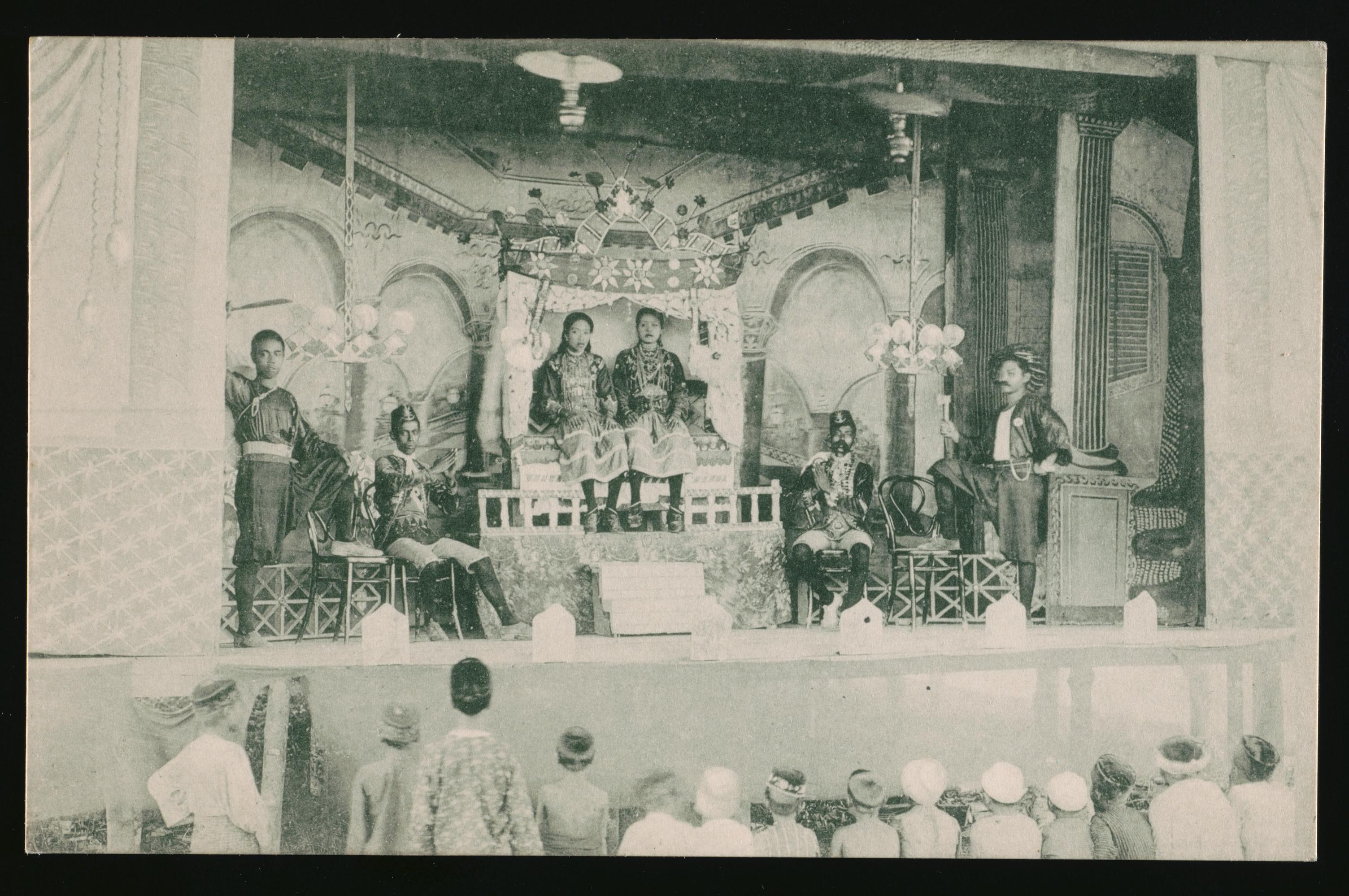Malay Opera (Bangsawan) Shakespeare

Photograph showing Bangsawan theatre (early-mid 20th century). Courtesy of the National Museum of Singapore, National Heritage Board. Accession no. 2007-50869.
The bangsawan or Malay opera, shown here, was a hugely popular form of entertainment in early twentieth century Singapore and Malaysia. Originally, this form was inspired by the visiting Parsi theatre troupes known locally as 'wayang parsi'. These troupes came from Mumbai (or Bombay, as it was then known) and toured Singapore and Malaysia in the late nineteenth century.
The name bangsawan literally means ‘nobility’ or ‘something noble’ (Tan 1989 p. 232). Bangsawan troupes would put on productions drawn from a wide range of sources, including Malay or Arab legends, Chinese romances and, intriguingly, Shakespeare plays. Bangsawan Shakespeare thus represented the most common form of vernacular Shakespeare in early twentieth-century Singapore. In Singapore, the bangsawan form declined in the later twentieth century with the rise of television.
Click on the video to find out more about how bangsawan companies indigenised Shakespeare in early twentieth century Singapore.
Transcript of Video
